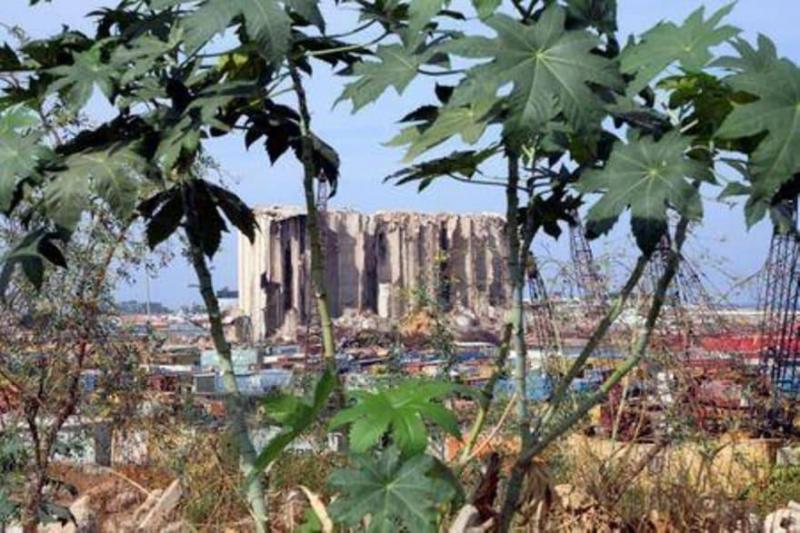The escalating tension surrounding the investigation into the Beirut port explosion threatens to plunge Lebanon into a new political crisis, testing Prime Minister Najib Mikati's new government as it struggles to lift the country from economic collapse. More than a year after the blast that rocked Beirut and killed over 200 people, efforts by Judge Tarek Bitar to interrogate senior officials over negligence face increasing political obstacles, largely due to the Iranian-backed Hezbollah group.
It was anticipated that ministers allied with politicians whom Bitar seeks to interrogate would pressure the government session on Wednesday to call for Bitar's dismissal, after a similar topic led to a heated session on Tuesday. However, the Wednesday session was postponed pending agreement on a “framework” to address the issue, according to a responsible source. The investigation has diverted attention away from tackling one of the worst recessions in the world and risks undermining Mikati's government, formed last month after over a year of disputes over cabinet seats.
The disagreement highlights Hezbollah’s significant influence, leading calls for Bitar's replacement and accusing him of conducting a politicized investigation targeting specific individuals. Bitar sought to interrogate a prominent politician, former Finance Minister Ali Hassan Khalil, who stated that all options were open for political escalation when asked during an interview on Tuesday if some ministers might resign. Khalil, the right-hand man of Speaker Nabih Berri and a close ally of Hezbollah, told Al-Mayadeen that the course of the investigation threatens to push Lebanon "toward civil war." Bitar issued an arrest warrant for Khalil on Tuesday after he failed to appear for questioning.
Hezbollah and its allied Amal Movement had previously withdrawn their ministers from the government during periods of political conflict, causing the downfall of the Sunni-led government by withdrawing Shiite representation. Along with the Christian Marada Movement, led by Suleiman Frangieh, a Hezbollah ally, they called on their supporters to demonstrate against Bitar in front of the Justice Palace on Thursday. Christian opposition leader Samir Geagea rejected what he termed "submission" to intimidation by the group, urging Lebanese citizens to prepare for a peaceful strike if "the other side" tries to impose its will by force.
Mikati stated that Lebanon cannot afford to dismiss a second judge following the removal of the first investigator in February when the court accepted a complaint questioning his neutrality. Mikati's priority is to revive talks with the International Monetary Fund to rescue Lebanon, but he has limited time to achieve this before elections next spring. According to Heiko Weimen, an analyst at the International Crisis Group, the dispute will “drain energy and make (Mikati) appear weak,” adding that it raises significant doubts about the feasibility of this government.
Mhaned Haj Ali from the Carnegie Middle East Center pointed out that Hezbollah "has been demonstrating its influence and power, which reflects poorly on Mikati's government." Nizar Saghieh, head of the Legal Agenda, a research organization, asserted that the government does not have the authority to dismiss Bitar, but could overturn a previous decision to refer the investigation to the Judicial Council, which would be a significant affront to the "separation of powers."
Foreign countries that Lebanon hopes to seek assistance from have called for a transparent investigation into the explosion caused by a massive quantity of improperly stored ammonium nitrate. The U.S. State Department accused Hezbollah on Tuesday of threatening the Lebanese judiciary. Hassan Fadlallah, a Hezbollah deputy, claimed that these statements represent a violation of Lebanese sovereignty and demonstrate "the level of interference to control the investigation into the Beirut port explosion."
While Bitar has sought to interrogate several politicians allied with Hezbollah, he has not pursued questioning any members of the group itself. All officials whom Bitar sought to interrogate over negligence deny any wrongdoing, including Hassan Diab, the prime minister at the time of the explosion. The Parliament's secretariat claims that the judiciary exceeds its powers with any steps against presidents, ministers, and members of parliament. Critics of Bitar argue that he violates the constitution by pursuing senior officials for whom any cases should go through a special process for presidents and ministers.




